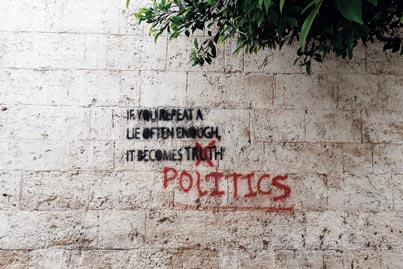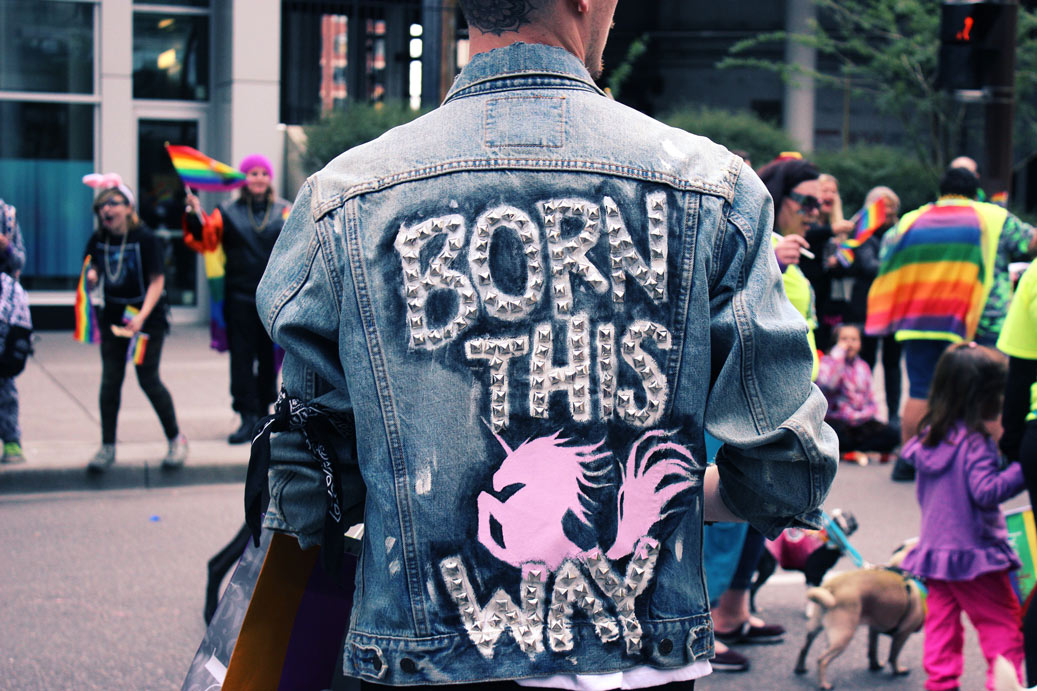
More and more people say they don’t believe in God. So why is it still such a taboo in politics?

Religion is becoming the last safe harbour for prejudice, but how do you argue with someone who defends the indefensible on the basis of their faith?
“The trouble with gay people is they want it both ways.” That was a friend’s recent startling take on the debate about gay marriage. His comment provoked a few sniggers from the rest of us as well as some robust debate. The word ‘homophobe’ might have been used, but he was having none of it and played what he felt was his winning card.
“You can’t change my mind. That’s what my faith tells me,” he declared. And that was that. No moving, no debate. It wasn’t that he disliked homosexuals – it was just because a book forbade it.
This is a line of argument that is becoming increasingly popular. You’ll find it when Jacob Rees Mogg justifies his opposition to same sex marriage and abortion – even in the case of rape and incest. You find it with US states allowing LGBT objection on religious grounds.
And it works. It’s a get out of jail free card – suddenly all sorts of abhorrent views become acceptable – you’re not a bigot, you’re just ‘very devout’.
In a way I envy them. We all have our little prejudices, no matter how liberal we try to be. I for example think Audi drivers should be banned, the gay community should be made to apologise for the crimes committed by Disco and I don’t trust anyone from Belgium. I’m not sure why, perhaps it’s because I think they are what would have happened if Lidl created the French. Either way, if I voice those opinions people quite rightly start to pass judgements in much the same way as you probably are now.
If only I could point out that these strange obsessions weren’t my fault, they’d been handed down to me in a book dictated by a magic sky wizard.
What makes this argument so difficult is that it appeals to our instinctive sense of inclusion. We believe in free speech and that people should follow whatever God they like in whatever way they want. However, there are ways to argue the point.
This is a surprisingly difficult question to answer, because when you look closely at the Bible and other religious texts, they are much more ambivalent than you’d expect. Indeed, there are only six passages in Bible which reference homosexuality and, even then, the references are open to interpretation.
The two most commonly cited instances are Leviticus 18:22 (which states: “thou shalt not lie with mankind as with woman kind, it is an abomination) and the story of Sodom and Gomorrah.
In this tale, God sends two angels to the city disguised as men. They are taken in by a kindly man called Lot, but when the rest of the city hears about this they march on his house demanding they be handed over so they can ‘yada’ them. This has often been translated as ‘rape’, which is where many people see the crime beginning and ending. God punished the people of Sodom for the sin of gay sex.
But that wasn’t their crime. Rather it was attempted gang rape and turning away a stranger. Lot, eventually becalms the mob by offering them his two daughters instead – a supreme act of hospitality, but a horrific act of parenting.
Back to Leviticus which most will see as the clincher. Yes, two men lying together is described as an ‘abomination’, but so too are many other things. Here are just a few.
The list goes on, but on the bright side you can sell your daughter into slavery. Few people stick to these, so it begs the question: what makes homosexuality special?
This might cause a few raised voices, but there’s no getting away from it: the Bible has lots of stories with homoerotic undertones, none more so than the story of David and Jonathan. Both would have been rivals for the throne, but their deep affection was too strong. Was their love platonic or was it, as some writers have suggested, something more? David Mace, for example, in the book Hebrew Marriage said this was “the comparatively harmless homosexual attachments of adolescence”. So gay sex is a sin unless it’s just a teenage phase.
In the end, though, you’ll have to admit that what you’re dealing with is not a question of religion. There are plenty of gay men and women who feel perfectly comfortable in their faith. Even some prominent evangelists have changed their tune.
Religion doesn’t forbid homosexuality. What it does forbid are hatred, violence and prejudice. The root of the problem is not their religion – it’s that they have chosen to cherry pick passages which fit their own views.
Either way, being confrontational probably won’t get you very far. None of us react well to being told we’re wrong, but if we’re asked the right questions we can often argue ourselves to a standstill. The same questions can work here. You might not change their views, but you might persuade them to stop blaming them on God.
 Tom Cropper has spent the last 15 years writing mainly about business, technology, politics and anything else he can persuade people to publish.
Tom Cropper has spent the last 15 years writing mainly about business, technology, politics and anything else he can persuade people to publish.
Follow Tom on twitter @Cropp77